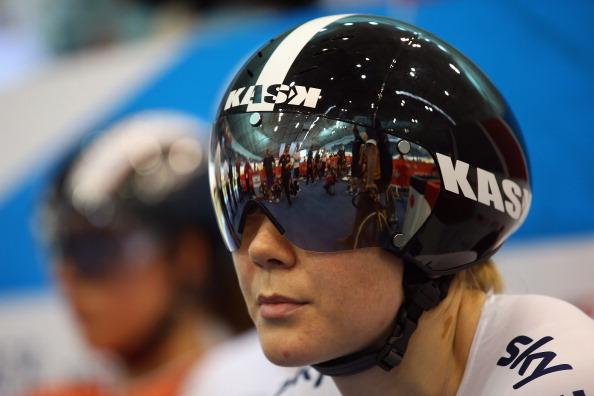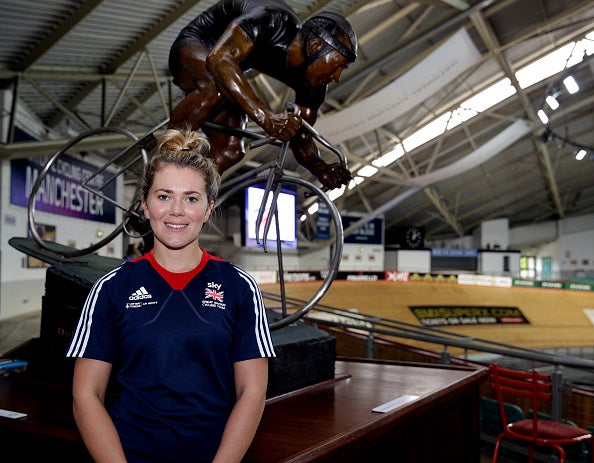Verdict in Jess Varnish case against UK Sport and British Cycling will not be heard until mid-January
British Cycling's barrister accused Varnish of telling ‘half-truths’ and ‘gravely misrepresenting’ her coaches

Your support helps us to tell the story
From reproductive rights to climate change to Big Tech, The Independent is on the ground when the story is developing. Whether it's investigating the financials of Elon Musk's pro-Trump PAC or producing our latest documentary, 'The A Word', which shines a light on the American women fighting for reproductive rights, we know how important it is to parse out the facts from the messaging.
At such a critical moment in US history, we need reporters on the ground. Your donation allows us to keep sending journalists to speak to both sides of the story.
The Independent is trusted by Americans across the entire political spectrum. And unlike many other quality news outlets, we choose not to lock Americans out of our reporting and analysis with paywalls. We believe quality journalism should be available to everyone, paid for by those who can afford it.
Your support makes all the difference.The verdict in Jess Varnish’s employment case against British Cycling and UK Sport will not be revealed until mid-January at the earliest, a tribunal has been told.
After four days of cagey, complex and, at times, confrontational argument, Judge Ross told the tribunal on Friday she will now retire to deliberate but would be reserving her judgement.
This means she will not reveal her decision on Monday, as scheduled, but “will strive” to publish a written verdict within 28 working days, which she hoped would be “by mid-January”.
Varnish, who was cut from the Great Britain cycling programme in March 2016, is trying to persuade the tribunal she was effectively employed by British Cycling and the elite funding agency UK Sport so she can then sue cycling’s governing body for wrongful dismissal.
If the 28-year-old, who is now seven months pregnant, succeeds in being treated as an employee, it could have far-reaching implications for how all British Olympic and Paralympic athletes are funded – a situation that British Cycling’s barrister Thomas Linden QC memorably described as “the skies falling in” for UK Sport.

Judge Ross closed proceedings at the Manchester Employment Tribunal by saying that while this is an “unusual case”, her verdict will be based on legal principles she deals with regularly.
She also thanked the “very experienced and skilled counsels” who appeared for Varnish and the respondents but said her approach would be the same as in cases involving “no representation”.
Those counsels were given a last chance to show their powers of persuasion on Friday, as the barristers for Varnish, British Cycling and UK Sport all made their final submissions.
In his big pitch, Linden accused Varnish and her witnesses of telling “half-truths” and “gravely misrepresenting” her coaches.
“This is a case of the highest public interest and extremely important to athletes, sport and the funding bodies, so it is vital a fair and accurate picture is presented,” he said.
“What we have witnessed here is the difference between self-interest and the public interest. For good or ill we have presented the facts – I am not sure I able to say the same of the claimant.”
Linden apologised for being “waspish” and resorting to “sound and fury” during cross-examination but said Varnish and her witnesses – ex-GB BMX star Liam Phillips, now her partner, and her agent James Harper – gave him no choice.
In summation that lasted nearly two hours, Linden tried to rubbish Varnish’s evidence about the amount of control British Cycling coaches had over their riders in terms of what they wear, when they train, what they do in their spare time and what personal sponsors they can have.

He accused Varnish’s barrister David Reade QC of a “tactical error” in basing his argument on recent ‘gig economy’ cases involving Pimlico Plumbers and Uber, and said his opposite number had “scored a hat-trick of own goals” by drawing attention to times when British Cycling coaches treated young riders “like they were school children” as “they were school children”.
But this case will hinge on whether Judge Ross believes the agreements that athletes sign with their respective governing bodies and UK Sport are “contracts of employment” or not.
In an explanation that ranged from concrete mixers to lap dancers, Linden said the agreements “are highly restrictive but not contracts of employment”.
He argued they are “tax-free, means-tested grants” and the terms and conditions are in the small print.
“They’re trying to drive a round peg into a square hole,” said Linden, who then made an analogy with students at school who wear uniform, follow rules and do exams that help the school’s status but would never consider themselves employees of the school.
UK Sport’s barrister Jane Mulcahy QC made similar points but less stridently, although she did make it clear that the agency believes Varnish’s case is entirely without merit.
When it was his turn, Reade said the ‘gig economy’ precedents for this case were obvious and he pointed out that Varnish had provided a “service” to British Cycling and UK Sport in terms of success as an athlete and that she was remunerated for that service.
He also rejected Linden’s claims that Varnish had tried to “manipulate” the media and turn the tribunal “into a circus” and said she did not “deserve to be castigated for giving her evidence correctly”.
Referring to an email exchange between her and former technical director Shane Sutton over a winter training camp she wanted to attend in Australia six years ago, Reade said: “What’s important is the glimmer of the steel fist beneath the velvet glove.”
PA
Join our commenting forum
Join thought-provoking conversations, follow other Independent readers and see their replies
Comments